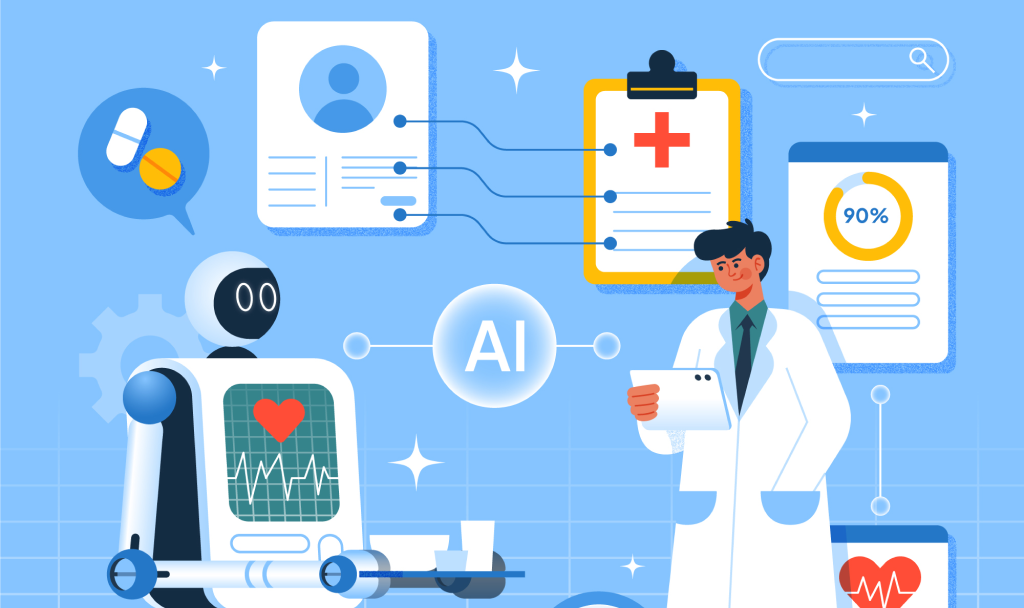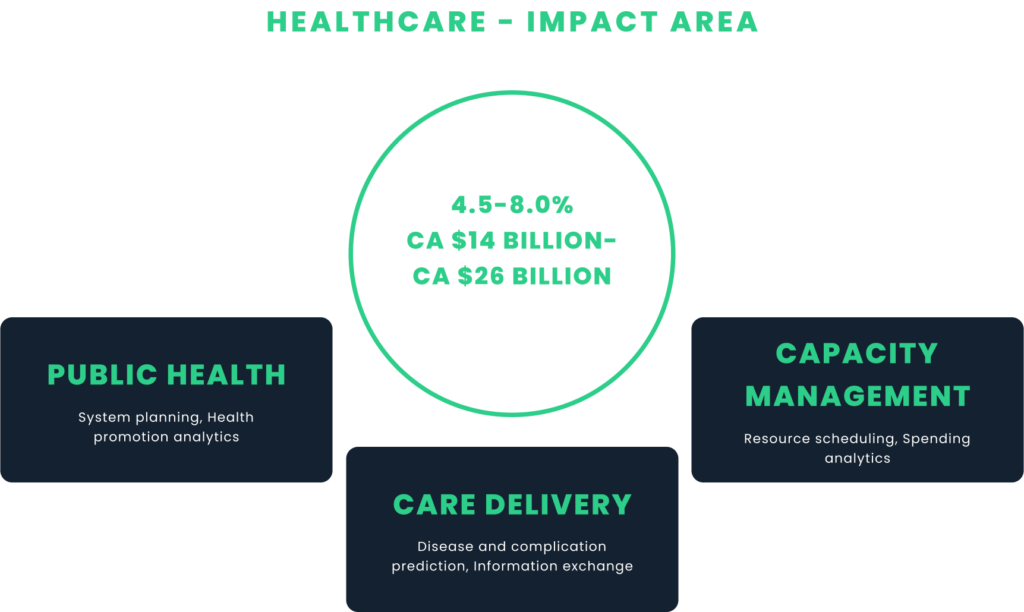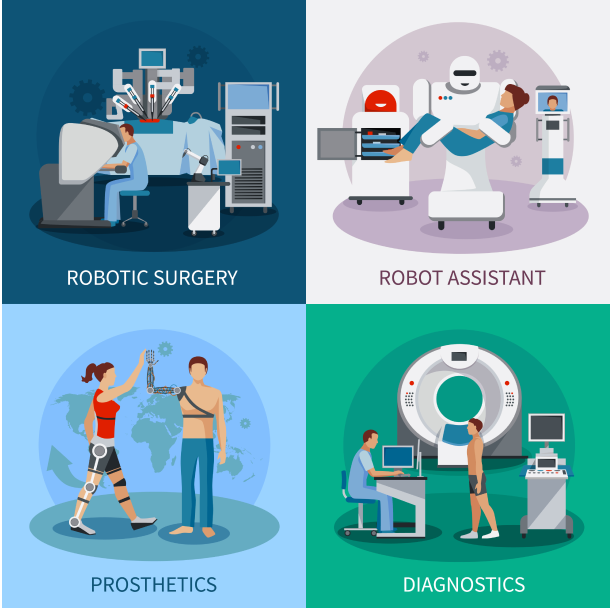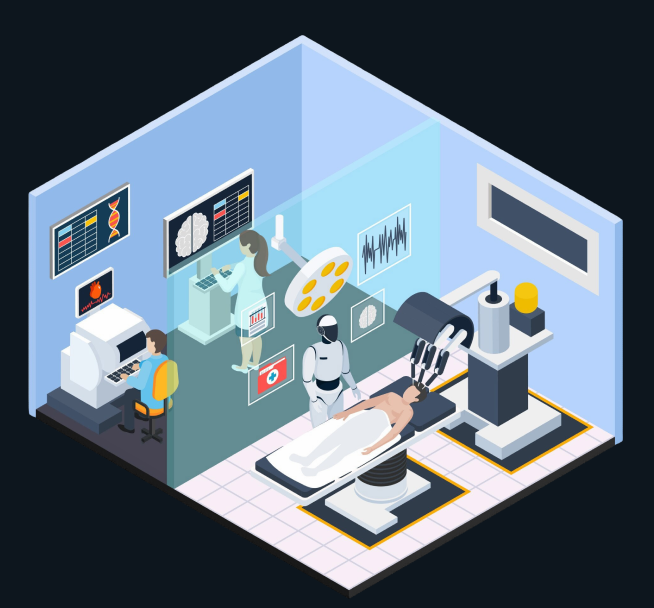Did you know that Canada has some of the longest specialist wait times among developed nations? In 2020, 62% of Canadians who needed specialist care had to wait a month or more, placing the country at the bottom of a study comparing eleven Commonwealth nations.
But today, the healthcare industry in Canada is at a turning point and artificial intelligence (AI) is leading this transformation journey. AI promises to revolutionize patient care by making operations more efficient, enhancing diagnostic accuracy, and addressing systemic challenges. As the adoption of AI in healthcare accelerates, it brings both immense potential and unique challenges.
This blog delves into the possibilities AI offers for Canadian healthcare, its cost-saving potential, the challenges to implementation, and emerging trends that we can expect to shape the sector in 2025 and beyond.
1. How AI Could Transform Healthcare in Canada
AI has the potential to alleviate some of the most pressing issues in Canada’s healthcare system, such as long wait times, staff shortages, and rising costs. With the adoption of technologies like predictive analytics and robotic process automation (RPA), healthcare providers can optimize scheduling, resource allocation, and patient flow.

For example, predictive algorithms could help emergency departments anticipate patient surges and prepare resources in advance, reducing bottlenecks and improving care delivery. AI also offers opportunities to enhance telemedicine by providing real-time analysis of patient data, enabling more personalized and timely interventions.
AI Revolutionizing Patient Wait Time

2. Savings Potential in AI-Driven Healthcare
The financial impact of AI adoption in healthcare is substantial. A study by McKinsey estimates that the implementation of AI solutions could result in billions of dollars in annual savings for Canada’s healthcare system by 2030.

AI can drive significant cost savings across three key areas of Canadian healthcare: public health, care delivery, and capacity management. By enabling data-driven insights for system setup and population health management, AI can help forecast future healthcare needs and implement targeted interventions, saving up to CA $16 billion annually. Tools like clinical-decision support and IT system integration enhance care delivery by predicting patient risks and streamlining electronic health records, contributing an additional CA $3–5 billion in savings. Moreover, AI-powered capacity control and supply chain management optimize resource planning and procurement, reducing inefficiencies and minimizing losses.
Incorporating cloud-based solutions, such as those offered through Application Transformation, ensures scalability and enhances the financial impact of these AI-driven initiatives. This comprehensive approach not only improves affordability but also maintains the quality of care.
3. Overcoming Implementation Challenges and Risks
While the benefits of AI are clear, healthcare organizations face significant barriers to adoption:
- Data Privacy and Security: AI systems require access to large datasets, raising concerns about patient confidentiality and compliance with regulations like HIPAA and PIPEDA.
- Integration with Legacy Systems: Many healthcare institutions rely on outdated infrastructure, making it challenging to integrate new AI technologies. Infrastructure Modernization is critical to overcoming these barriers.
- Resistance to Change: Stakeholders may resist adopting AI due to fear of job displacement or lack of understanding about its capabilities.
To address these challenges, healthcare providers must invest in robust Cloud Security solutions and develop change management strategies that engage and educate stakeholders.
4. Enhancing Healthcare Operations with AI
AI-powered solutions are reshaping healthcare operations, making them more efficient and agile. Automated scheduling systems, for example, can optimize workforce management by predicting staffing needs based on historical data. Similarly, AI-powered supply chain management tools ensure that hospitals are adequately stocked with critical medical supplies without overordering.
Improving Hospital’s operational workflow, scheduling, supply chain management, and performance monitoring.

AI-driven analytics can also help healthcare providers monitor performance and identify inefficiencies. With tools for Data and Analytics, organizations can make data-driven decisions that enhance patient outcomes and streamline processes.
5. Increasing Efficiency in Diagnoses
AI is revolutionizing the diagnostic process by enabling faster and more accurate identification of medical conditions. Machine learning algorithms analyze medical images to detect diseases such as cancer and neurological disorders with greater precision than traditional methods.
AI-driven diagnostics. Highlight benefits like “Faster results,” “Greater precision,” and “Early detection.”

In Canada, researchers are developing AI models that analyze electronic health records to identify patients at risk of chronic illnesses, enabling early intervention. As these technologies evolve, they will complement the expertise of healthcare professionals, enhancing diagnostic accuracy and reducing the burden of misdiagnoses.
6. Future Trends in AI and Healthcare
Looking ahead to 2025 and beyond, several key trends will define the role of AI in healthcare:
- Personalized Medicine: AI will enable tailored treatment plans based on genetic, lifestyle, and environmental factors, improving patient outcomes.
- Real-Time Remote Monitoring: Wearable devices powered by AI will allow continuous tracking of vital signs, empowering patients to manage chronic conditions from home.
- AI-Powered Drug Discovery: The use of AI to accelerate drug development will lead to faster innovation and more cost-effective treatments.
- AI and Robotics: Robotic surgery powered by AI will become more precise, leading to faster recoveries and reduced complications.
Future Trends for 2025 and beyond

AI offers solutions to long-standing challenges while paving the way for a more efficient, accurate, and patient-centric system. However, the journey to widespread adoption is fraught with challenges that require strategic planning, investment in modern infrastructure, and collaboration across stakeholders.
How Can Celestial Systems Help?
We are empowering healthcare organizations with tools and technologies that simplify the integration of AI into their operations. In collaboration with Microsoft, we provide:
- Data Integration and Management: Using Microsoft Fabric, we enable seamless data sharing and analysis across platforms, ensuring healthcare providers can unlock the full potential of their data.
- Cloud-Based Solutions: With Azure and Microsoft Power Platform, we deliver scalable, secure, and compliant cloud solutions that support AI-driven innovations in healthcare.
- Infrastructure Modernization: We address legacy system challenges by designing custom frameworks that ensure a smooth transition to modern, AI-ready infrastructure.
- AI Adoption Strategies: Celestial Systems provides change management and training programs to help stakeholders understand the benefits of AI, overcoming resistance and fostering adoption.
By driving these initiatives, Celestial Systems is shaping a future where AI empowers healthcare providers to deliver more efficient, accurate, and patient-centered care. Our focus on scalable, innovative solutions ensures that we stay at the cutting edge of this transformative industry.

